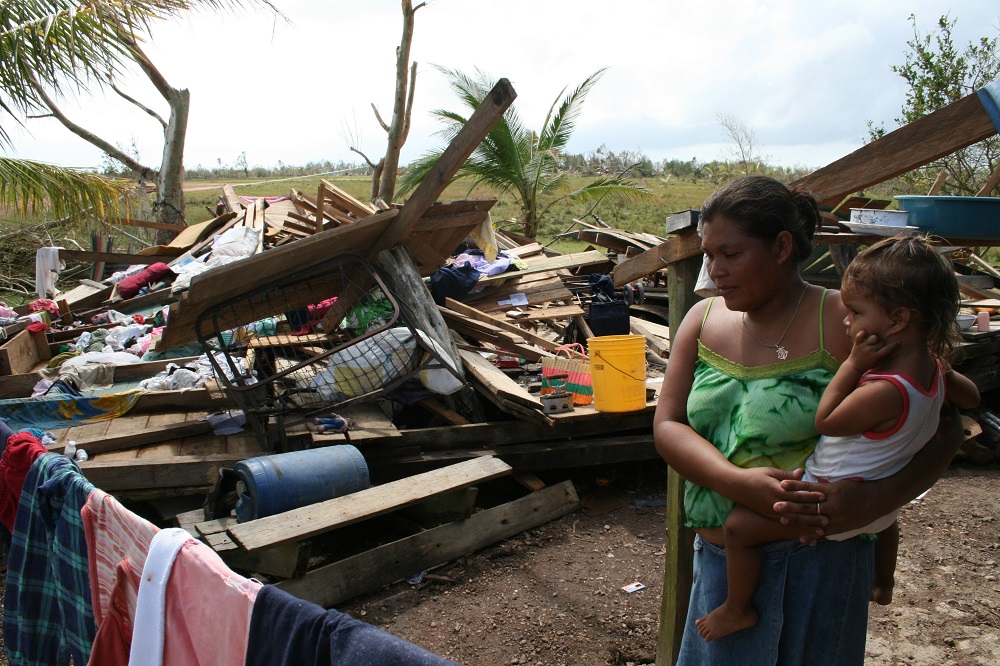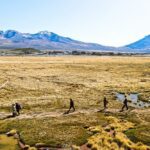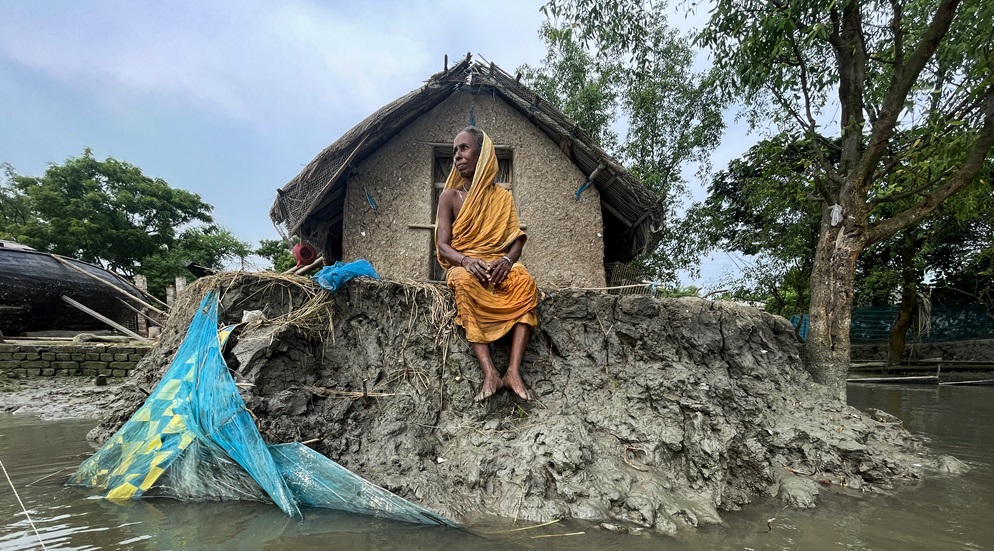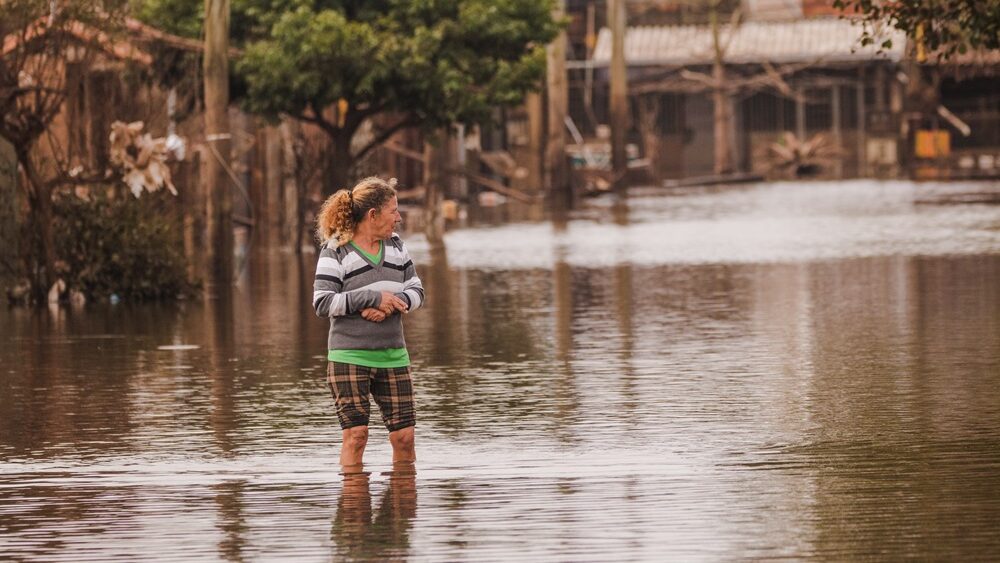This perspective article was written by Mr. Juan Carlos Méndez, PDD Regional Advisor for the Americas and the Caribbean
2024 is a key year for the Americas to address and strengthen the protection of people displaced in the context of disasters and the adverse effects of climate change. Both the Inter-American Court of Human Rights (IACtHR) and the Inter-American Commission on Human Rights (IACHR) have initiated efforts to address the human rights implications of climate change, including its interlinkages with displacement and other forms of human mobility, and are expected to clarify State obligations in this context. These efforts align with broader regional processes, including the Cartagena +40 process and its upcoming regional consultations.
Displacement and human mobility in the context of disasters and the adverse effects of climate change is a growing global and regional concern. According to the Internal Displacement Monitoring Centre (IDMC), the number of disaster displacements in 2022 (32.6 million) was the highest figure in a decade, with 98% of these displacements linked to weather-related hazards including floods, storms and droughts. In the Americas, nearly 80% of internal displacements recorded in 2022 were disaster-related. This presents a significant challenge for the humanitarian community and to the achievement of the Sustainable Development Goals and the effective enjoyment of human rights for all.
Across the region, the interlinkages between displacement, disasters and climate change are increasingly recognized. In 2023, the Organisation of Eastern Caribbean States released a Ministerial Declaration on Migration, Environment and Climate Change, marking a significant milestone in the region’s approach to these challenges. Likewise, under the Cartagena +40 Process, Chile has identified displacement in the context of disasters and climate change as one of its priorities for the Chile Plan of Action 2024. Similar attention has been afforded to the issue at the national level, with Costa Rica having organized a National Forum on Human Mobility and Climate Change and assumed the Vice-Chairmanship of the Platform on Disaster Displacement in February 2024.
Inter-American Court of Human Rights
In February 2023, in a historic moment for the protection of human rights in the context of climate change in the Americas, Colombia and Chile submitted a request to the Inter-American Court of Human Rights for an Advisory Opinion (AO) to clarify States’ human rights obligations in the context of climate change. This was supported by more than 200 written submissions (‘amicus curiae briefs’) from States, civil society organizations, international organizations, academic centers, and others.
In April and May 2024, the Court will hold two public hearings to address this request. While the hearings will broadly focus on the intersection between the climate emergency and human rights, it is expected that displacement and human mobility will be raised and discussed, particularly given that many of the amicus briefs touched on these issues. Likewise, the AO request submitted by Colombia and Chile explicitly identified that people are displaced and move in the context of climate change, with disproportionate impacts on groups in vulnerable situations, and requested the Court to address and clarify State obligations in this context.
Inter-American Commission on Human Rights
In parallel, on 29 February 2024, the Inter-American Commission on Human Rights (IACHR) held its first-ever public hearing on the Human rights of people on the move due to the effects of climate change. Requested by 30 civil society organizations from the region, the hearings brought together a range of stakeholders, including representatives of affected communities, to discuss human rights challenges around human mobility in the context of climate change. Participants discussed the human rights impacts of climate change, particularly on livelihoods, as well as structural and intersectional inequalities in this context. Other issues raised included the need for rights-based migration pathways in the context of climate change as well as the need for increased international cooperation and financing to address these challenges.
Civil society actors called on the IACHR to establish a Working Group to draw up measures and/or guidelines to strengthen protection in this context, while Dr. Andrea Pochak, IACHR Special Rapporteur on the Rights of Migrants, asked the IACHR to formulate a resolution on the protection of people displaced in the context of disasters and climate change in 2024.
A Year of Collective Action
As the human rights implications of the climate crisis continue to become more pronounced, the commitment and leadership demonstrated by the Americas to address these challenges is monumental. The Advisory Opinion and other decisions that may emerge from these processes will provide authoritative guidance on State obligations in the context of climate change and pave the way for a more resilient future for those affected by the climate crisis.
It will not only advance the meaningful enjoyment of human rights within planetary boundaries but will hopefully serve as an important example of action for other regions to proactively address the interlinkages between human rights and climate change, including human mobility.
The year 2024 marks a turning point, urging nations to work collaboratively towards solutions that uphold the dignity and rights of all individuals in the face of environmental adversity..
Cover photo: Alex Wynter/International Federation of Red Cross and Red Crescent Societies. Hurricane Felix aftermath, Nicaragua, September 2007.
Raquel Samora, 29, and her daughter Carlin standing in front of what used to be their home in Krukira, a village on Nicaragua’s Mosquito Coast, until Hurricane Felix swept through.








